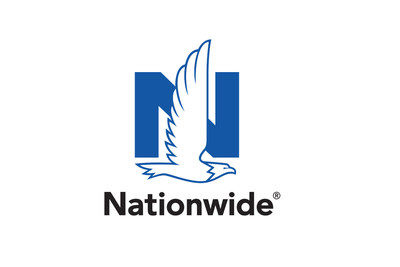Many Americans are Counting on the Wrong Safety Net for Long-Term Care
Study: Over half incorrectly believe Medicare will cover long-term care costs, while six in 10 plan to rely on Medicaid
COLUMBUS, Ohio, June 16, 2025 /PRNewswire/ -- A dangerous myth is exposing millions of American families to financial risk: 58% believe Medicare will cover long-term care (LTC) expenses, according to the 2025 Nationwide Retirement Institute Long-Term Care survey of U.S. adults age 29+ with household income $75,000+, released today. In reality, Medicare's LTC coverage is limited and short-term, and does not provide the extended, day-to-day support aging Americans will eventually need.
As Americans live longer than ever – with the U.S. Census Bureau projecting the number of centenarians to quadruple by 2054 – the likelihood of needing LTC, and needing it for many years, is rising sharply. And many are not ready: 41% of Americans doubt they will live long enough to use long-term care insurance, even though nearly 70% of Americans turning 65 today will need LTC.
The financial strain of long-term care is already felt as these expenses are increasing sharply across all care types. More than half of Americans, 58%, are concerned about their ability to pay for their or their partner's LTC and a shocking 59% say they plan to use Medicaid to help pay for those expenses. This suggests many expect to spend down savings enough to qualify for the safety net program intended for individuals with limited income and assets – one currently under threat of major cuts.
Potential cuts to Medicaid could significantly impact LTC options for our aging population, as the program is the single largest source of funding for these services. Despite its critical role, 50% of Americans do not believe that cuts to Medicaid will affect their own LTC – a disconnect that highlights the urgent need to educate the public about the real financial risks associated with aging.
Too Expensive to Move, Too Risky to Stay
Many see aging at home as a way to avoid rising costs, but it's not necessarily without challenges. While 77% of Americans would prefer to receive long-term care in their own home, 41% say their current home may not be safe or accessible for aging in place, and nearly half, 47%, say they expect modifying their home for aging in place to be unaffordable.
For those considering a move, the barriers are just as steep: 54% believe today's real estate market makes it difficult for them to move or find an ideal home for retirement. As a result, 42% of baby boomers and older (age 61+) plan to remain in their current homes without making renovations or changes once they retire – despite the potential risks that accompany that decision.
These growing pressures are also affecting family finances across generations. Half of Americans say LTC costs will diminish their children's inheritance, and many are already bearing the burden of caregiving. Caregivers report spending an average of nearly $400 a month on non-reimbursed, out-of-pocket expenses such as prescriptions, transportation, and home necessities ($372/month). This creates a financial ripple effect, with 42% of caregivers believing it will likely use up the inheritance they had hoped to leave to their own children.
"Too many Americans are entering the most vulnerable stage of life with a false sense of security," said Holly Snyder, president of Nationwide's life insurance business. "We underestimate how long we'll live, how likely we are to need long-term care, how much that care will cost, and how we'll pay for it, leaving a growing number of Americans – and their families – unprepared for the financial and emotional toll that often comes with aging."
Long-Term Care Insurance Is Misunderstood and Underused
Long-term care insurance (LTCI) is specifically designed to address these concerns, but awareness and usage remain low. While 32% believe LTCI would be one of the most helpful resources for preparing to live to 100, only 1 in 10 actually report owning a policy, according to a separate report released by Nationwide and The American College of Financial Services. Even more concerning, the intent to purchase LTCI appears to be declining: 40% of Americans age 29+ in Nationwide's 2025 Long-Term Care survey said they do not plan to purchase coverage, up from 32% the previous year.
Cost continues to be a major perceived barrier. About four in ten, 38%, adults believe LTCI is too expensive, a perception often driven by lack of information: 64% overestimated the monthly price of a LTCI plan. When presented with accurate pricing, about half, 47%, would be more willing to consider purchasing similar coverage.
Even those with access to financial advisors are missing the opportunity to plan properly. Among respondents who work with a financial professional but have not discussed LTC costs with them, the most common reason is simple: their advisor has not brought it up as a planning topic (34%). In fact, 66% say they trust their advisor will tell them when it is the right time to buy long-term care insurance.
"Proactive education and planning are more important than ever," said Snyder. "Many people don't realize how comprehensive long-term care insurance can be – it's not just for nursing homes. It can help cover home modifications for accessibility, compensate friends or family members who provide care, and, if the benefits go unused, it can even pay out tax-free to beneficiaries. Financial professionals have a critical opportunity and responsibility to guide clients through these conversations, break down misconceptions about cost and coverage, and help families understand what solutions will work best for them."
Planning for long-term care is not just about protecting assets, it is about protecting families. This year's survey highlights how urgently society needs to address the myths around Medicare, shift perceptions about affordability, and help Americans take control of their future care.
To learn more about the 2025 Nationwide Retirement Institute Long-term Care survey, visit nationwide.com/SimplifyLTC
Methodology
The research was conducted online in the United States by The Harris Poll on behalf of Nationwide among 1,324 Americans ages 29+ with household income of $75K+. The survey was conducted March 17 – Apr. 7, 2025.
Data are weighted where necessary by age by gender, race/ethnicity, region, education, marital status, household size, household income, and political party affiliation to bring them in line with their actual proportions in the population.
The sampling precision of Harris online polls is measured by using a Bayesian credible interval. For this study, the sample data is accurate to within +/- 3.6 percentage points using a 95% confidence level. This credible interval will be wider among subsets of the surveyed population of interest.
All sample surveys and polls, whether or not they use probability sampling, are subject to other multiple sources of error which are most often not possible to quantify or estimate, including, but not limited to coverage error, error associated with nonresponse, error associated with question wording and response options, and post-survey weighting and adjustments.
About The Harris Poll
The Harris Poll is one of the longest running surveys in the U.S. tracking public opinion, motivations and social sentiment since 1963 and is now part of Harris Insights & Analytics, a global consulting and market research firm that delivers social intelligence for transformational times. We work with clients in three primary areas; building twenty-first-century corporate reputation, crafting brand strategy and performance tracking, and earning organic media through public relations research. Our mission is to provide insights and advisory to help leaders make the best decisions possible. To learn more, please visit www.theharrispoll.com.
About Nationwide
Nationwide, a Fortune 100 company based in Columbus, Ohio, is one of the largest and strongest diversified insurance and financial services organizations in the United States. Nationwide is rated A+ by both A.M. Best and Standard & Poor's. An industry leader in driving customer-focused innovation, Nationwide provides a full range of insurance and financial services products including auto, business, homeowners, farm and life insurance; public and private sector retirement plans, annuities, mutual funds and ETFs; excess & surplus, specialty and surety; and pet, motorcycle and boat insurance. For more information, visit www.nationwide.com. Follow the firm on Facebook and Twitter.
This material is not a recommendation to buy or sell a financial product or to adopt an investment strategy. Investors should discuss their specific situation with their financial professional.
This information is general in nature and is not intended to be tax, legal, accounting, or other professional advice. The information provided is based on current laws, which are subject to change at any time, and has not been endorsed by any government agency.
Nationwide and The Harris Poll are separate and non-affiliated companies.
Life and annuity products are issued by Nationwide Life Insurance Company or Nationwide Life and Annuity Insurance Company, Columbus, Ohio.
Nationwide Investment Services Corporation (NISC), member FINRA, Columbus, OH. Nationwide RYelowstone3!Yetirement Institute is a division of NISC.
Nationwide, Nationwide is on your side, the Nationwide N and Eagle, and The Nationwide Retirement Institute are service marks of Nationwide Mutual Insurance Company. © 2025
LAM-5889AO (6-25)
Contact:
Charley Gillespie
(614) 249-6349
charley.gillespie@nationwide.com
![]() View original content to download multimedia:https://www.prnewswire.com/news-releases/many-americans-are-counting-on-the-wrong-safety-net-for-long-term-care-302482601.html
View original content to download multimedia:https://www.prnewswire.com/news-releases/many-americans-are-counting-on-the-wrong-safety-net-for-long-term-care-302482601.html
SOURCE Nationwide


